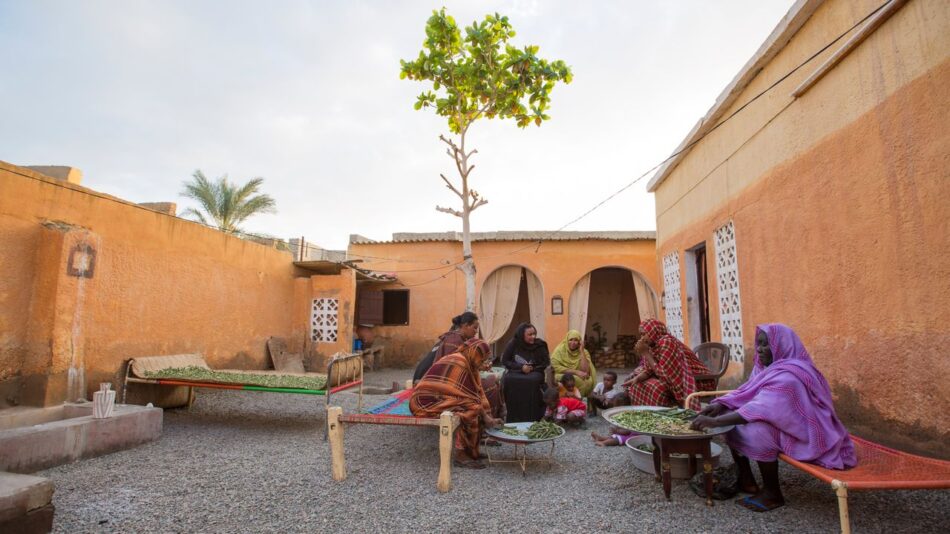“The story of this book, really, is in tandem with the 2018 Sudanese revolution,” says Omer Al-Tijani. Precisely one week before the first protest, on 18 December, Al-Tijani received funding to publish a cookbook: The Sudanese Kitchen. A few years earlier, jotting his mother’s recipes down ahead of flying the nest in Manchester, he realised how rare a trove he was building with so few Sudanese restaurants in the UK or resources elsewhere. “I thought it was such a shame that a food culture that is so rich and shaped my life, no one really knows about,” he tells Vogue, over the phone. Online, he started sharing images of food they made and a community quickly blossomed around it. “That’s when it made the shift from a personal project to something like a mission of mine.”
But, created almost entirely by Sudanese people, most of whom lived in the country, the book project would stop and start, as the hope and early wins of the revolution disintegrated into massacres, military coups and, now, a brutal war entering its third year that has turned Sudan into the worst humanitarian crisis in the world. “At one point, I really wasn’t sure if we’d even be able to complete it.” Editors, food stylists and photographers would suffer displacement or bouts of depression trying to help their family or rebuild their lives. One illustrator left Khartoum for the east when the war broke out, “but it was only once he got paperwork to go to the Emirates that he was able to start work again, because all of his equipment was destroyed”. Some ended up quitting the project entirely.
Published in July, the cookbook is itself a symbol of persistence and resistance over political strife and hardship, and its own quiet revolution, as the first Sudanese cookbook published in English. Al-Tijani dedicated the book to the fallen martyrs of the uprising, who were killed as it took shape. “I just want people to understand that these aren’t just numbers. These are real people’s lives; real people that put their life on the line in order for the country to be liberated,” he says. “People have amnesia. They move on and forget it happened. We have to keep talking about it… so you don’t forget it is happening to us on a daily basis.” His popular sporadic supper clubs – a place for people around the UK to savour home cooking once again or, often, try Sudanese food for the first time – since the war, have become fundraisers, often with screenings of brilliant documentaries like Beats of the Antonov and Sit In by Eltayeb Mahdi, or short films like Jagdpartie by Ibrahim Shaddad.


.jpg)







